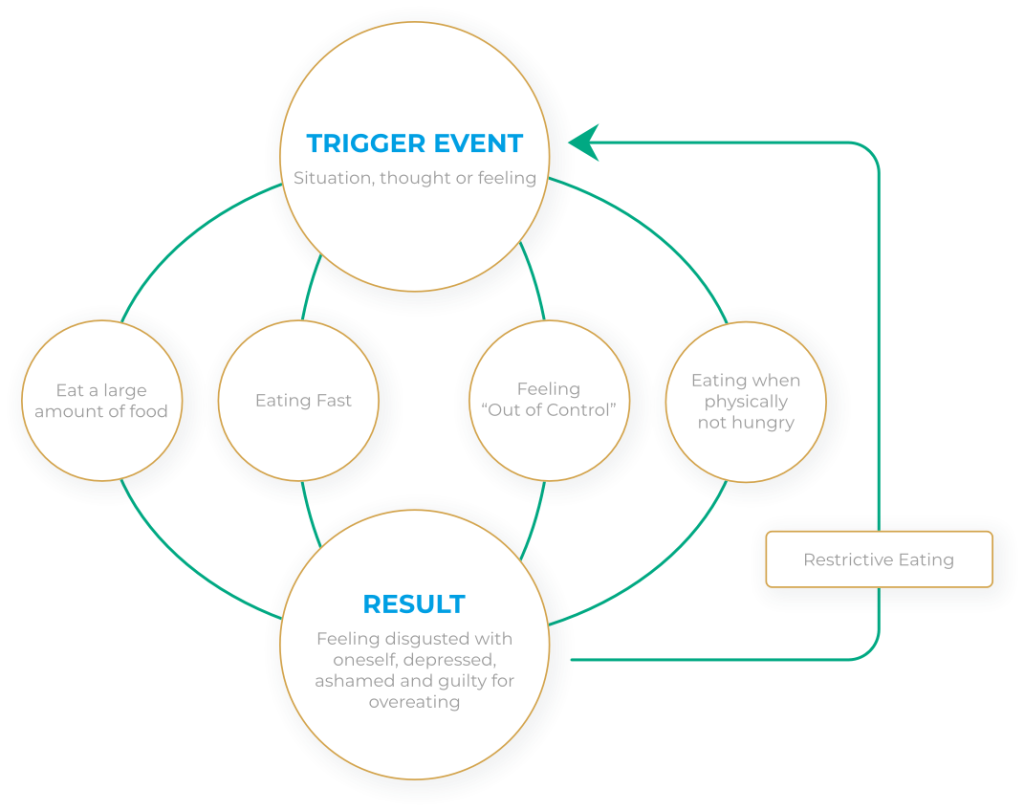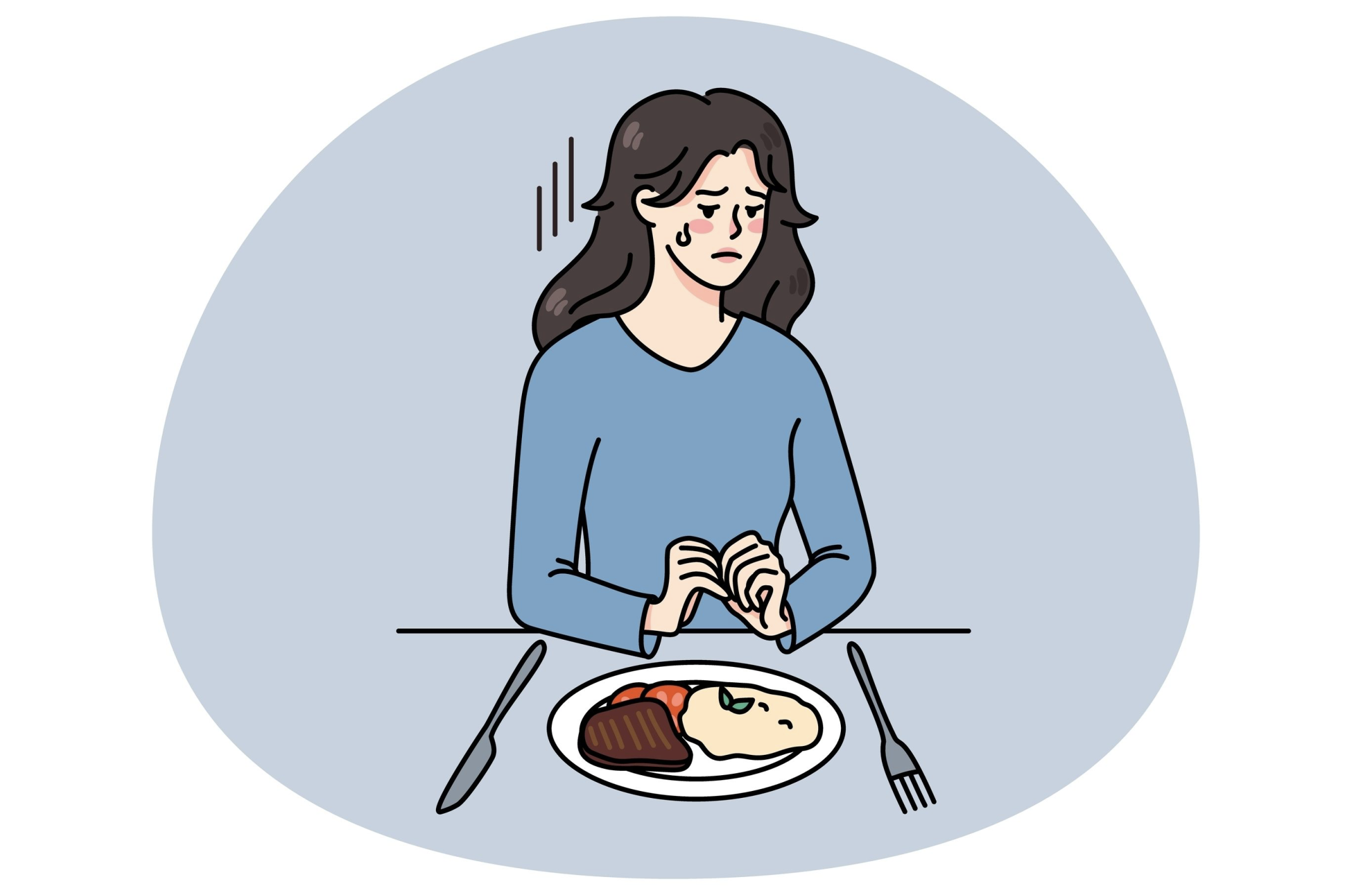Disordered Eating
- Holistic Approach: Integrating Nutrition, Psychology & Lifestyle For Lasting Results
- Expert-Backed: Gold Standard Weight Loss Medication & Nutrition Guidance From Our Expert Team
- Proven Experience: 19 Years Tailoring Unique Weight Loss Plans To You
What is Disordered Eating?
We all struggle with some form of disordered eating at some point in our lives. Eating because we are stressed, because we are emotional or because we are playing a game with food.
In the moments when we can describe eating as disordered, somehow we have started to distort the way we use food in our lives. Some of us will feel out of control with food, eating large amounts of food, quickly. Others will start restricting food, because they need to feel in control when the world around them feels chaotic.
Change Your Life, Feel Confident In Your Body
Let us support you in improving your physical and mental health.
Schedule a call with our friendly and experienced assessment team by using the booking calendar below.
We value being clear and open about our prices, so please check Our Fees before booking a call.
Book a Free Assessment
Book a Discovery Session
What is Disordered Eating?
We all struggle with some form of disordered eating at some point in our lives. Eating because we are stressed, because we are emotional or because we are playing a game with food.
In the moments when we can describe eating as disordered, somehow we have started to distort the way we use food in our lives. Some of us will feel out of control with food, eating large amounts of food, quickly. Others will start restricting food, because they need to feel in control when the world around them feels chaotic.

Symptoms of ????
Emotional eating can make us feel excited and relieved in the short term, but is quickly followed with self-loathing and recrimination.
- Holistic Approach: Integrating Nutrition, Psychology & Lifestyle For Lasting Results
- Expert-Backed: Gold Standard Weight Loss Medication & Nutrition Guidance From Our Expert Team
- Proven Experience: 19 Years Tailoring Unique Weight Loss Plans To You

Some Message
???? Treatment
The rollercoaster ride of yo-yo dieting evokes familiar feelings of hope, despair and failiure resulting in cycling bouts of weight loss and weight regain, with the end result of ill health and a progressively heavier weight.
- Holistic Approach: Integrating Nutrition, Psychology & Lifestyle For Lasting Results
- Expert-Backed: Gold Standard Weight Loss Medication & Nutrition Guidance From Our Expert Team
- Proven Experience: 19 Years Tailoring Unique Weight Loss Plans To You
A food cue is something that consciously or subconsciously triggers your brain and body to expect food and want to eat. There are thousands of different things that could be a food cue for you – from smells, surroundings, social occasions, images, sounds and even just certain times of the day.
To help you to identify what things trigger your wanting, it can be really useful to keep a food diary for one to two weeks. Note down where you were when you ate or started wanting food, note down your emotions, what happened leading up to the wanting, who you were with and what it was you were craving.
Building up an awareness of what your food cues are can help you to distinguish from when you are genuinely hungry as opposed to when you are wanting as a result of experiencing a food cue.
Although not possible to entirely rid your surroundings of food cues, you can also help yourself by limiting your exposure to things that trigger you to want to eat, or pre-emptively planning what you can do if you know you will encounter unavoidable food cues.
It may seem counterintuitive that exercising reduces our excessive wanting for certain foods. However, studies have shown that moderate exercise is associated with lower cravings and excessive wanting.
This may be due to the beneficial effect of exercise on our appetite control and energy levels, which also influence our susceptibility to cravings.
Exercising also has major benefits to our mood and stress levels, which as we have explored above, are also important to nurture if we want to avoid excessive wanting.
Overeating and excessive wanting may not just be due to sensitivity to food cues.
An excessive wanting for food may also be an expression for wanting and needing comfort, distraction or escape.
If we are stressed, suffering from low self esteem, have psychological wounds from trauma, or experiencing/have experienced neglect and do not have a strong support network or toolkit of other healthier coping mechanisms, it can be very easy to turn to food for comfort or distraction.
Eating ‘bad’ foods can also be a way to rebel against the demands and restrictions we experience throughout life. We can find ourselves craving the euphoria of the moment when we let ourselves ‘give up’ and ‘give in’ to the cravings.
When we ‘want’ the food, what we may actually want and need is support.
Working with a therapist can help you understand, and rebuild, your relationship with food.
Our team of therapists at WeightMatters are highly experienced in this area. With awareness and understanding, we can support you in changing and updating the lines in your sand.
Services we recommend for ????
Emotional eating can make us feel excited and relieved in the short term, but is quickly followed with self-loathing and recrimination.
???? Treatment FAQs
The rollercoaster ride of yo-yo dieting evokes familiar feelings of hope, despair and failiure resulting in cycling bouts of weight loss and weight regain, with the end result of ill health and a progressively heavier weight.
A food cue is something that consciously or subconsciously triggers your brain and body to expect food and want to eat. There are thousands of different things that could be a food cue for you – from smells, surroundings, social occasions, images, sounds and even just certain times of the day.
To help you to identify what things trigger your wanting, it can be really useful to keep a food diary for one to two weeks. Note down where you were when you ate or started wanting food, note down your emotions, what happened leading up to the wanting, who you were with and what it was you were craving.
Building up an awareness of what your food cues are can help you to distinguish from when you are genuinely hungry as opposed to when you are wanting as a result of experiencing a food cue.
Although not possible to entirely rid your surroundings of food cues, you can also help yourself by limiting your exposure to things that trigger you to want to eat, or pre-emptively planning what you can do if you know you will encounter unavoidable food cues.
It may seem counterintuitive that exercising reduces our excessive wanting for certain foods. However, studies have shown that moderate exercise is associated with lower cravings and excessive wanting.
This may be due to the beneficial effect of exercise on our appetite control and energy levels, which also influence our susceptibility to cravings.
Exercising also has major benefits to our mood and stress levels, which as we have explored above, are also important to nurture if we want to avoid excessive wanting.
Overeating and excessive wanting may not just be due to sensitivity to food cues.
An excessive wanting for food may also be an expression for wanting and needing comfort, distraction or escape.
If we are stressed, suffering from low self esteem, have psychological wounds from trauma, or experiencing/have experienced neglect and do not have a strong support network or toolkit of other healthier coping mechanisms, it can be very easy to turn to food for comfort or distraction.
Eating ‘bad’ foods can also be a way to rebel against the demands and restrictions we experience throughout life. We can find ourselves craving the euphoria of the moment when we let ourselves ‘give up’ and ‘give in’ to the cravings.
When we ‘want’ the food, what we may actually want and need is support.
Working with a therapist can help you understand, and rebuild, your relationship with food.
Our team of therapists at WeightMatters are highly experienced in this area. With awareness and understanding, we can support you in changing and updating the lines in your sand.
Our fees / private medical insurance

Some text about fees and insurance
Knowledge hub
Emotional eating can make us feel excited and relieved in the short term, but is quickly followed with self-loathing and recrimination.

Title 1

Title 2

Title 3

